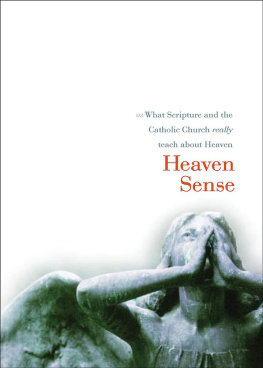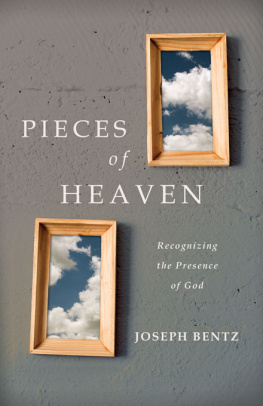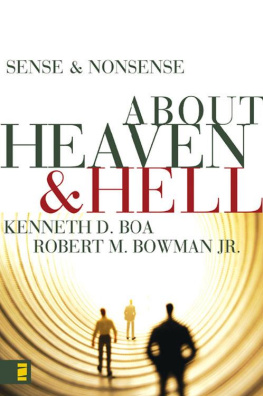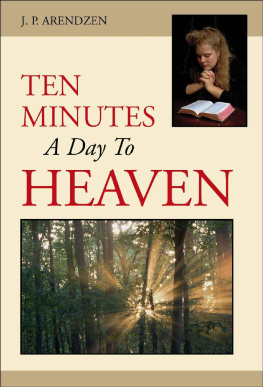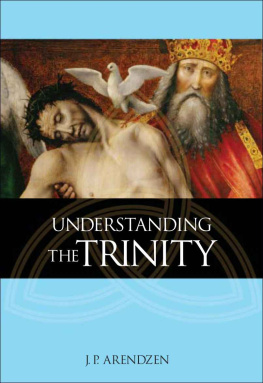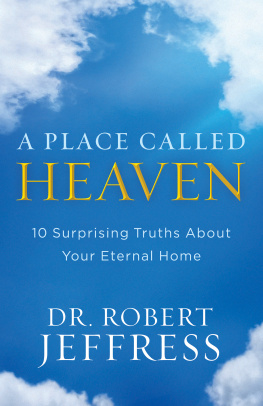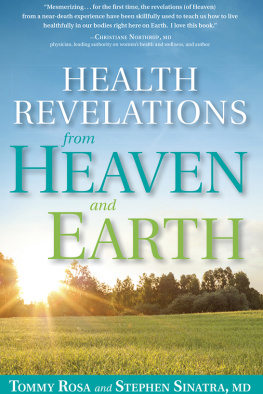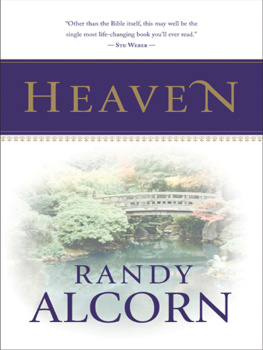Rev. J.P. Arendzen - Heaven Sense
Here you can read online Rev. J.P. Arendzen - Heaven Sense full text of the book (entire story) in english for free. Download pdf and epub, get meaning, cover and reviews about this ebook. year: 2013, publisher: Sophia Institute Press, genre: Religion. Description of the work, (preface) as well as reviews are available. Best literature library LitArk.com created for fans of good reading and offers a wide selection of genres:
Romance novel
Science fiction
Adventure
Detective
Science
History
Home and family
Prose
Art
Politics
Computer
Non-fiction
Religion
Business
Children
Humor
Choose a favorite category and find really read worthwhile books. Enjoy immersion in the world of imagination, feel the emotions of the characters or learn something new for yourself, make an fascinating discovery.
- Book:Heaven Sense
- Author:
- Publisher:Sophia Institute Press
- Genre:
- Year:2013
- Rating:4 / 5
- Favourites:Add to favourites
- Your mark:
- 80
- 1
- 2
- 3
- 4
- 5
Heaven Sense: summary, description and annotation
We offer to read an annotation, description, summary or preface (depends on what the author of the book "Heaven Sense" wrote himself). If you haven't found the necessary information about the book — write in the comments, we will try to find it.
Heaven Sense — read online for free the complete book (whole text) full work
Below is the text of the book, divided by pages. System saving the place of the last page read, allows you to conveniently read the book "Heaven Sense" online for free, without having to search again every time where you left off. Put a bookmark, and you can go to the page where you finished reading at any time.
Font size:
Interval:
Bookmark:
Heaven Sense
What Scripture and the Catholic Church Really Teach about Heaven
J. P. Arendzen
SOPHIA INSTITUTE PRESS
Manchester, New Hampshire
Heaven Sense was originally published by the Macmillan Company, New York, in 1928 under the title The Church Triumphant. This 2004 edition by Sophia Institute Press contains minor editorial revisions to the original text.
Copyright 2004 Sophia Institute Press
Printed in the United States of America
All rights reserved
Cover design by Theodore Schluenderfritz
No part of this book may be reproduced, stored in a retrieval system, or transmitted in any form, or by any means, electronic, mechanical, photocopying, or otherwise, without the prior written permission of the publisher, except by a reviewer, who may quote brief passages in a review.
Sophia Institute Press
Box 5284, Manchester, NH 03108
1-800-888-9344
www.SophiaInstitute.com
Nihil obstat:
Arthur J. Scanlan, S.T.D.,
Censor Librorum Imprimatur:
Patrick Cardinal Hayes,
Archbishop of New York
[Church triumphant]
Heaven sense : what scripture and the Catholic Church really teach about heaven / J.P. Arendzen.
p. cm.Originally published: The Church triumphant. New York : Macmillan, 1928. Includes bibliographical references.
ISBN 1-928832-16-4 (pbk. : alk. paper)
1. Heaven Christianity. 2. Catholic Church Doctrines. I. Title.BT846.3.A74 2004
236. 4 dc22200402338604 05 06 07 08 09 10 9 8 7 6 5 4 3 2 1
Other books by J. P. Arendzen from Sophia Institute Press:
Ten Minutes a Day to Heaven
Understanding the Trinity
Foreword
Perhaps the topic that the priest finds most difficult of pulpit treatment is Heaven. This is not due to any dearth of theological or devotional matter on the subject. The difficulty arises, in the first place, from the fact that it requires far more than ordinary ability to visualize the happiness of Heaven as a compelling motive of right conduct, without running the risk of using comparisons between sensual and spiritual joys which are not only unbecoming, but sometimes ridiculous. Again, it is nearly impossible to give anything approaching a popular exposition of the essential happiness of the Beatific Vision.
Within the narrow limits of this small volume, Fr. Arendzen succeeds admirably in setting forth the Catholic doctrine of Heaven in a fashion that will prove helpful to the priest and the layman. Avoiding anything that approximates the descriptive treatment of Heaven, which mars so much of our devotional literature, and rigidly confining himself to the strict letter of Faith and its theological conclusions, he presents the story of the Church Triumphant as a reasonable and attractive doctrine.
In the introduction, Fr. Arendzen shows Heaven as the consummation of the Church of God begun in Eden and continued in time. Hell, the opposite of Heaven, is shown to be a frustration of Gods purpose in His providence over man and mans complete defeat; the happiness of Heaven is found in the vision of God Himself as the only divine revelation that fully satisfies our mental and moral faculties. By way of secondary sources of heavenly happiness, we have communion with Christ in His human nature, with our Lady, the angels and the saints. Supplementing these sources, we have what might be called the human relationships in Heaven of one soul with another.
Too much thought, as a rule, is given, both in public preachments and private meditations, to Hell, and not nearly enough to Heaven. No one spoke more earnestly than our Lord about the condign punishment that is the natural consequence of deliberate and continued sin. It should not be forgotten, however, that His promise of Gods own immediate companionship with those who love Him in both this life and the next is very frequently stressed in the New Testament.
There is undoubtedly a distinct place in our Catholic English literature for this book.
Rev. Harold Purcell, C.P.
Editors note: The biblical quotations in the following pages are taken from the Douay-Rheims edition of the Old and New Testaments. Where applicable, quotations have been cross-referenced with the differing names and enumeration in the Revised Standard Version, using the following symbol: (RSV =).
Introduction
For God, the creation and the final consummation of all things are ever present to His eternity. For men, who exist in time, their creation and their consummation are separated by the slow sequence of change measured by many days, many years, and many ages. God created us by an act of thought; He willed, He spoke, and we were. We are, because He knows us. On the impossible supposition that we should ever pass out of His sight, we would instantaneously cease to be and would sink back into the nothing from which we came.
Our creation meant that we entered into the sight of God, and our continued existence means that He keeps us in sight; our very being depends on His mind. Our consummation will be when we know God even as we are known, when we see Him, who has ever seen us and whose sight is our life. God knew us in order that one day we might know Him; such is the alpha and omega, the beginning and end of all human history.
The Church of God, in the full sense of the word, is the multitude of those whom God has called to eternal life.
We know, said St. Paul, that unto those who love God all things cooperate unto good even unto those who according to His purpose are called to be saints. For those whom He foreknew, He also predestined to become likened unto the image of His Son, that He might be the firstborn among many brethren. But those whom He predestined, He also justified, but those whom He justified He also glorified.
In this sense, there is but one Church of God from the days of Adam and Eve until the day when the whole multitude of the saved will be glorified around the throne of God. The Church of God began in Paradise and continues in Heaven.
On earth, it is divided into the church of the primitive covenant, that of the Mosaic, and that of the New or Christian covenant, but these three divisions can be united under the one name of Church Militant, for mans life on earth is a warfare, as Scripture says. To this warfare there is only one final alternative: either Heaven or Hell.
Hell is complete defeat and everlasting loss. Those who enter Hell completely pass out of the Communion of Saints and the Church of the Redeemed; they are outside the bond of charity and the benefit of the Atonement of Christ.
Those who enter Purgatory not only remain within the Church and the Communion of Saints, but are its holy and privileged members, who have made their salvation sure. Their state, however, is not a permanent one, and while it lasts, it combines the joys of security and the calm of resignation with the most intense pain of being deprived of the sight of God. Hence, the multitude of those waiting souls is called the Church Suffering.
Heaven is the only decisive and ultimate victory of which man is capable. Hence, the company of those who have fought the good fight, won the battle, and entered into the land of their conquest is called the Church Triumphant.
We shall study the nature of that ultimate triumph, that celestial consummation which awaits those who persevered unto the end and have received from the eternal King the reward that never passes away. In Heaven, man will achieve the perfection of his manhood in the supernatural order as God intended it. This will mean the complete satisfaction of his faculties of mind and will by the sight and possession of God Himself; it will mean the glorification also of his body and its faculties, because the body will be the handmaid of his soul in the perfection of his celestial life.
Next pageFont size:
Interval:
Bookmark:
Similar books «Heaven Sense»
Look at similar books to Heaven Sense. We have selected literature similar in name and meaning in the hope of providing readers with more options to find new, interesting, not yet read works.
Discussion, reviews of the book Heaven Sense and just readers' own opinions. Leave your comments, write what you think about the work, its meaning or the main characters. Specify what exactly you liked and what you didn't like, and why you think so.

